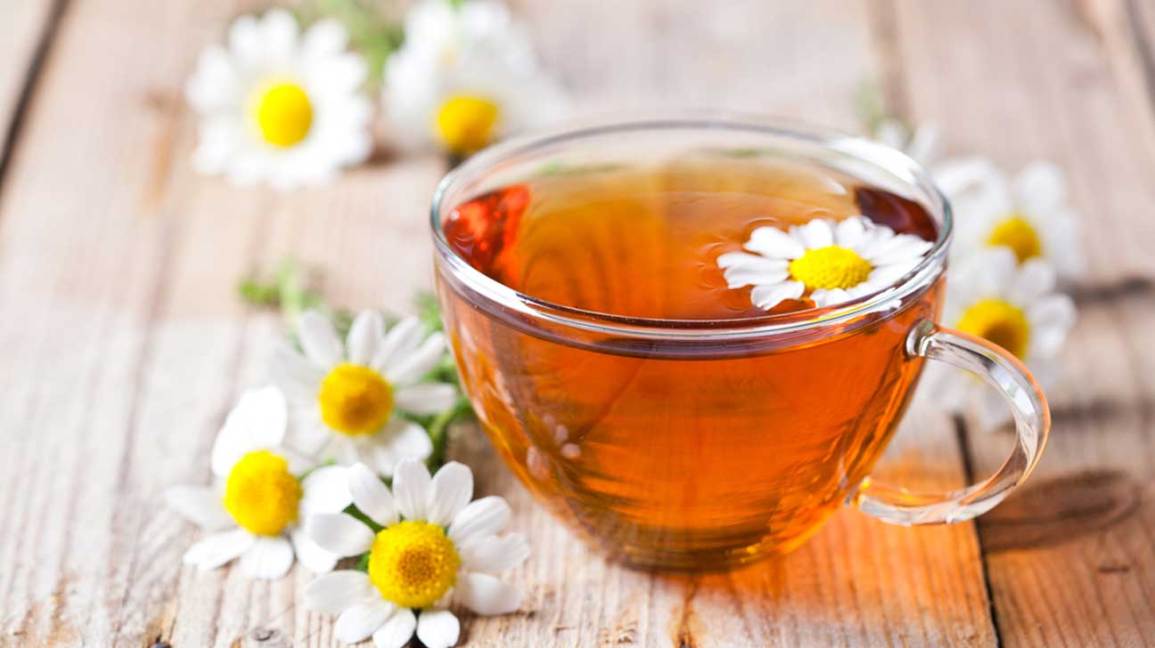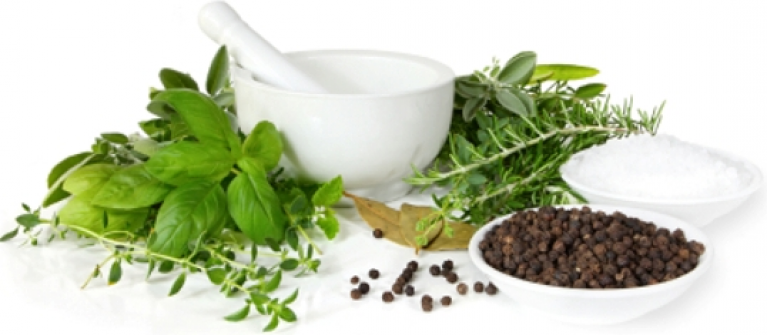8 Amazing Benefits of Eating Chamomile for the Organism!
The benefits of consuming chamomile for the body provide well-being from the first sip that is given to this wonderful soothing and relaxing tea. Our grandmothers are fans of this type of herbs, as they are always a good solution to calm even belly aches and help control nerves. Who has not resorted to this noble plant to prepare a tea at night and enjoy its immediate benefits?
Benefits of Using Chamomile:
Chamomile contains volatile oils that contain great health properties. Key oils include: bisabolol, bisabolol oxides A and B, and matricin, as well as flavonoids such as apigenin and other therapeutic substances. The benefits of this herb for the body is definitely something powerful! While recognized as a sleep-inducing agent, the variety of flavonoids and other substances can induce other health-related effects. In addition, animal studies have shown that chamomile reduces inflammation, accelerates wound healing, reduces muscle spasms, relieves hemorrhoids, reduces depression and provides antibacterial support. Chamomile is another one of those substances that can be widely used to solve a variety of problems.
1. Sleep Improvement:
Chamomile contains apigenin, an antioxidant that has an effect on the brain to fight insomnia and promote sleep.
2. Promotes Digestion:
 Some studies seem to suggest that chamomile is conducive to good digestion. In fact, it seems to be able to protect against diarrhea thanks to its anti-inflammatory properties. Another study suggests that chamomile may be effective in preventing stomach ulcers since it is possible that it reduces acidity in the stomach and inhibits the growth of bacteria that contribute to the development of ulcers.
Some studies seem to suggest that chamomile is conducive to good digestion. In fact, it seems to be able to protect against diarrhea thanks to its anti-inflammatory properties. Another study suggests that chamomile may be effective in preventing stomach ulcers since it is possible that it reduces acidity in the stomach and inhibits the growth of bacteria that contribute to the development of ulcers.
3. Prevention of Certain Cancers:
The antioxidants found in chamomile tea are related to a reduced risk of certain cancers. In fact, this herb contains apigenin: several studies suggest that apigenin fights certain types of cancer, including breast, digestive, skin, prostate and uterus.
4. Blood Glucose Level Control:
The anti-inflammatory properties of chamomile can prevent the deterioration of pancreatic cells, which occurs when the blood sugar level rises chronically. Pancreatic health is very important because it is the organ responsible for producing insulin, the hormone that removes sugar from the blood. In a study with diabetic participants, those who consumed this tea with their meals for 8 weeks significantly reduced their blood glucose levels compared to those who drank water
5. Improvement of Heart Health:
Chamomile has flavonoids, which is a type of antioxidant. Flavones have the potential to lower blood pressure and cholesterol, two important factors that lead to heart disease. One study suggested that this herb tea consumption improves total cholesterol in diabetics, as well as levels of LDL triglycerides and cholesterol.
6. Fight Colds:
Chamomile tea is often used in the prevention and fight against colds and to soothe sore throats.
7. Relieves Depression and Anxiety:
Evidence suggests that this herb may relieve symptoms of anxiety and depression, but especially when used in aromatherapy or supplements
8. Good for the Skin:
The use of chamomile in the form of creams, lotions or soaps has moisturizing properties and can help reduce skin inflammations.
Chamomile Definition:
Chamomile is scientifically known as Chamaemelum nobile native Europe, it is a strongly scented plant with yellow flowers and daisy family, used for medicinal purposes and as an infusion.
Where Does it Come From?
Chamomile includes several varieties: matricaire (or German), noble (or Roman). It is a perennial plant with green and waxy stems that carry flowers grouped in divisions at the end of the branches. This plant occurs in temperate areas of Europe and its flowers are used for infusions. Did you know that the Egyptians knew its effectiveness against fevers? Dioscorides and Galen also recommended it for pain and intense periods, hence its name learned from Matricaria chamomilla. And the doctors called it “precious medicine” which they prescribed in very concentrated doses.
Chamomile History:
Chamomile is a plant that has been used since ancient times, both the Egyptians and the ancient Romans used this in tea, salves, creams, incenses and other drinks. In Egypt, it is prescribed as a cold remedy. In the modern era, this tea at night is a staple to induce sleep. Recent studies have supported the effectiveness of this for the prevention of cold, sleep induction and other ancient applications.
What are its Uses?
Chamomile is one of the most consumed plants due to its multiple benefits. It facilitates digestion after meals, helps fight flatulence, calms neuralgia, body aches, toothache, menstrual pain and conjunctivitis, as it is an anti-inflammatory, and is an excellent ally for cosmetic uses.
Are there any Side Effects or Health Risks of Chamomile?
If people are prone to floral allergies, especially with ragweed, chrysanthemums, marigolds or daisies, you probably also have an allergy to chamomile. On rare occasions, people have had an allergic reaction severe enough to pass to anaphylaxis, a life-threatening condition that may include shock, hives, shortness of breath, vomiting and unconsciousness. This herb can also trigger allergic contact dermatitis (a type of eczema) in some people, which can cause redness, itching and swelling of the skin
How is Chamomile Prepared?
To prepare a chamomile tea you should color 1 to 1 1/2 teaspoons of dried flowers in hot water. Get close to your nose, breathe the aroma and enjoy tea time
What are Some Other Uses of Chamomile?
“Chamomile essential oils are used in aromatherapy to improve mood and relieve stress”.
Essential oils can be mixed in massage oils, lotions or creams and applied to the skin. They can also be inhaled by steam or steam therapy, as long as you are not allergic to this flower and are not taking other medications, you should be sure to allow your doctor’s consent. Chamomile, an herb with many virtues. The beneficial properties of this flower herb have been known since ancient times. The ancient Egyptians offered it as an offering to the sun and revere it more than any other herb for its medicinal qualities. Greek doctors prescribe it in case of fever and gynecological diseases. Today, it is still useful and popular.
-
Internal Use:
 Chamomile infusions help fight insomnia, nightmares, irritation and toothache. They can be safely consumed by young children. Chamomile infusions have mild soothing properties that relieve tension headaches, psychosomatic pains, menstrual cramps and other spasms or cramps, and performing chamomile and rosemary infusions are effective against headaches.
Chamomile infusions help fight insomnia, nightmares, irritation and toothache. They can be safely consumed by young children. Chamomile infusions have mild soothing properties that relieve tension headaches, psychosomatic pains, menstrual cramps and other spasms or cramps, and performing chamomile and rosemary infusions are effective against headaches.
-
External Use:
Compresses impregnated with cream or chamomile extract are used in cases of skin irritation and eczema. This vinegar helps in cases of genital irritation or hypersensitivity of the skin. Chamomile inhalation relieves the symptoms of hay fever. Compresses soaked in chamomile infusion relieve tired eyes and relieve allergies.
- Cosmetic Use:
The infusions have a slight lightening effect. Used as rinsing products, they lighten light brown hair and give a golden reflection to blonde hair. Chamomile is also used in cosmetics for its anti-inflammatory, soothing and soothing properties. Enter the composition of creams for (very) sensitive skin.




